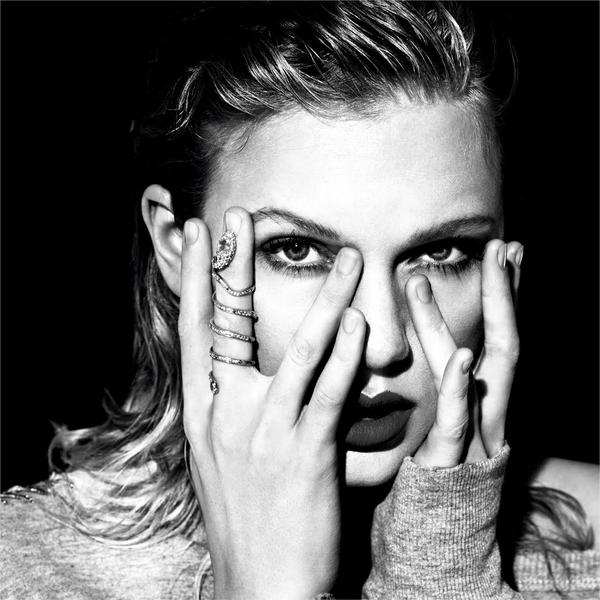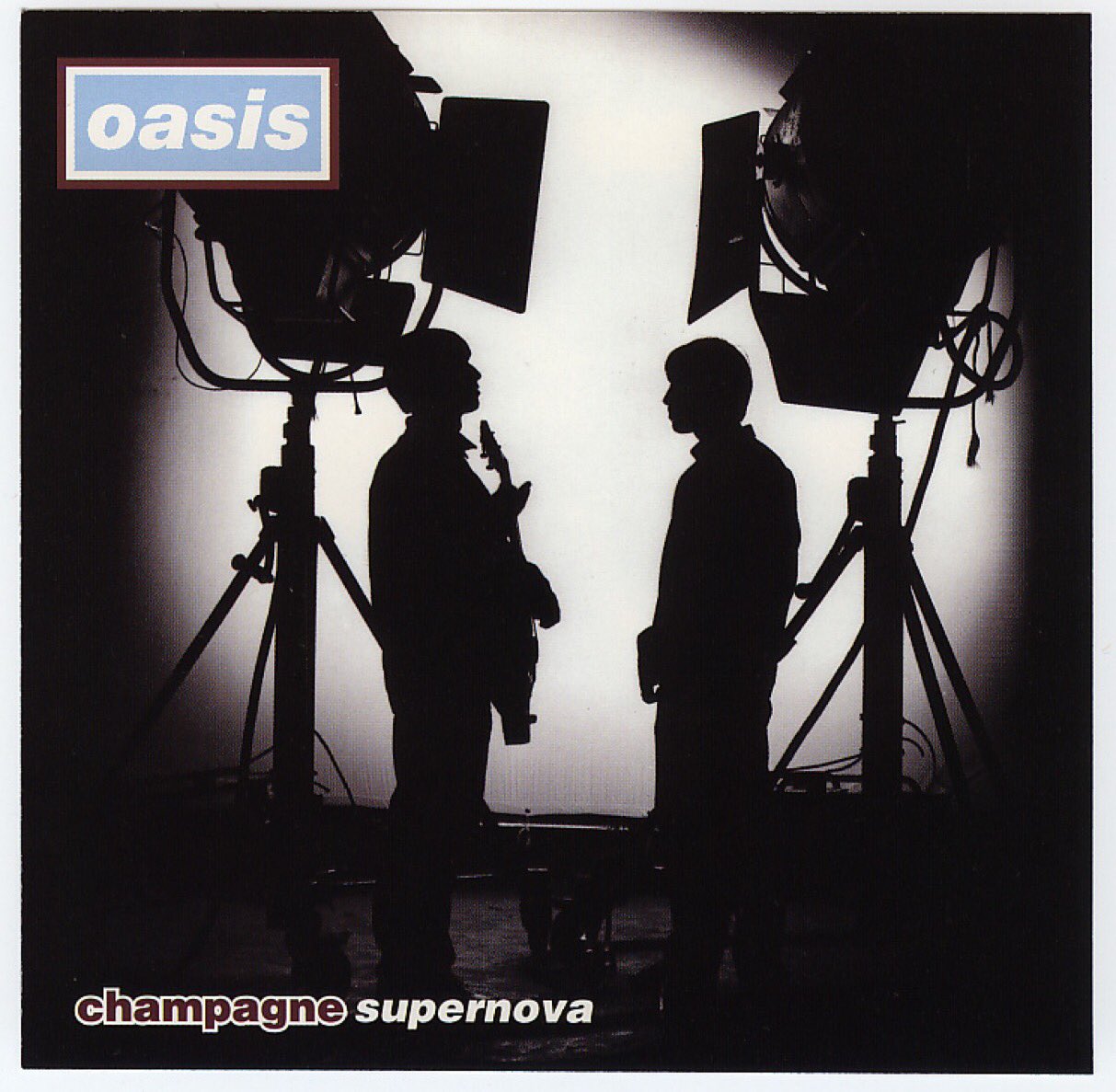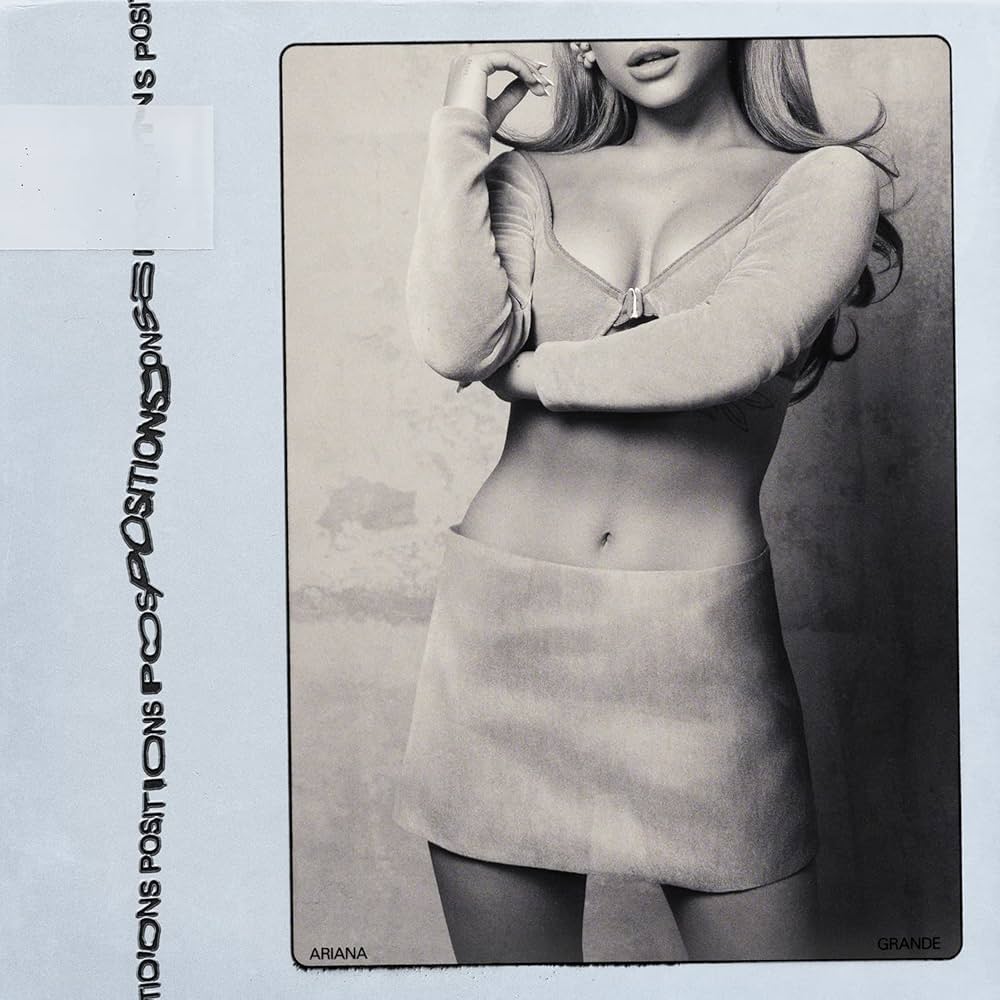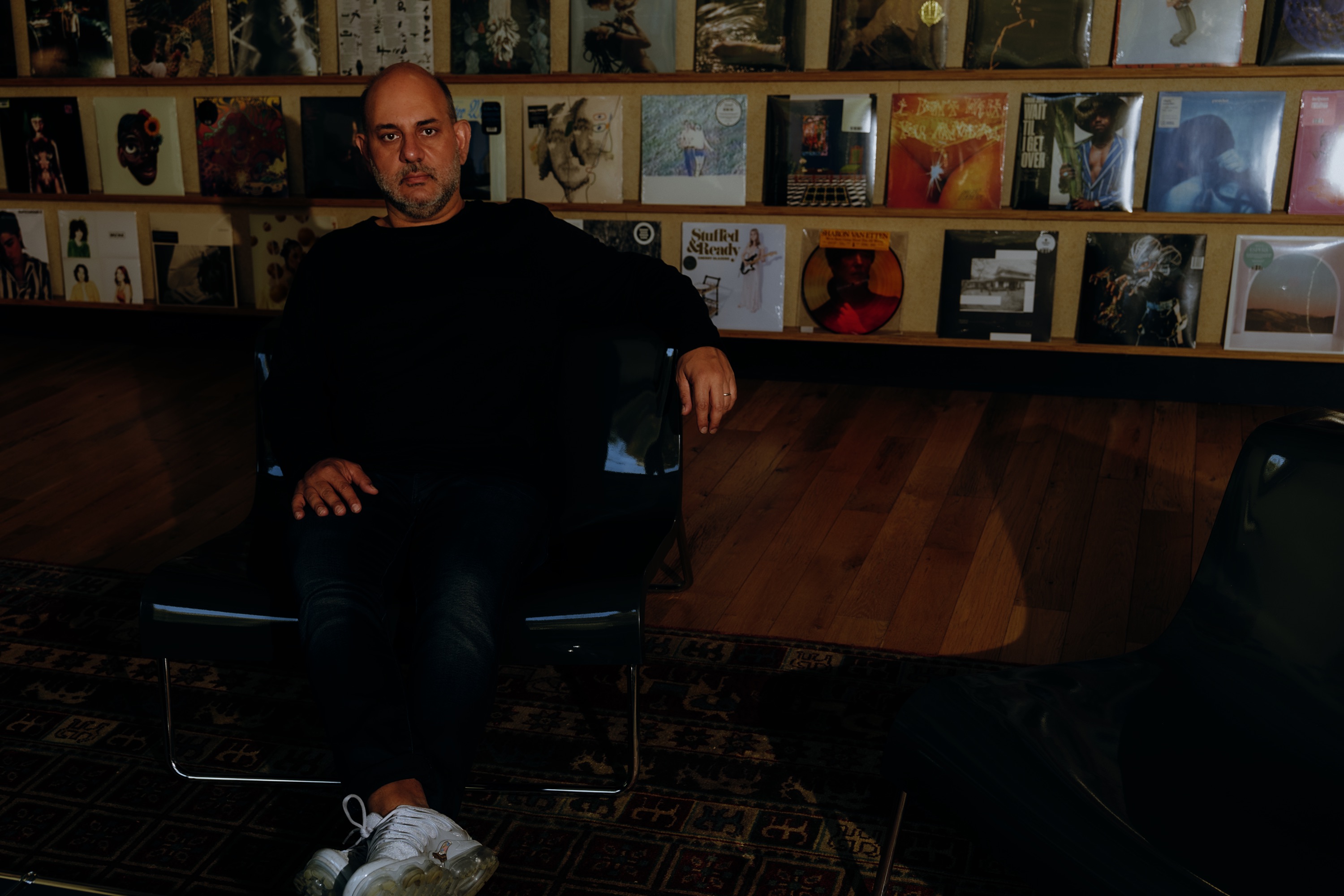Taylor Swift wrote her first hit single during her freshman year at Hendersonville High School in Tennessee. The song was about her then-boyfriend, a senior named Drew Dunlap, and it was called "Tim McGraw."
If you haven't heard "Tim McGraw," you should listen to it. If you don't care to listen, you can take my word for it: "Tim McGraw" is a truly beautiful song. And according to Swift, here's how it first came to her:
I got the idea in math class. I was just sitting there, and I started humming this melody. I kind of related it to this situation I was in. I was dating a guy who was about to go off to college. I knew we were going to break up. So I started thinking about all the things that I knew would remind him of me. Surprisingly, the first thing that came to mind was that my favorite country artist is Tim McGraw.
"Tim McGraw" announced the arrival of a supremely talented writer possessing a poet's eye for detail. Over the course of the song, Swift's narrator remembers "The moon like a spotlight on the lake" and "a boy in a Chevy truck/ That had a tendency of gettin' stuck/ On backroads at night." She reveals to the object of her affections that "in a box beneath my bed/ Is a letter that you never read/ From three summers back."
Now, we know the song is semi-autobiographical. We know that. But we also know it is neither a factual representation of Swift's life nor was it intended to be one. There was never any freaking letter "from three summers back." Swift wrote the song before she and Dunlap had even broken up! She was 14 years old! She was imagining it. "Tim McGraw" is a great song not because it documents Swift's adolescence, but because it captures something universal. It speaks to people.
That's what Taylor Swift does. She isn't a memoirist; she's a mirror. More importantly, she's an artist, and her poet's eye is matched by her poetic license. She has always done exactly this on just about every song to which she's attached her name. There's an entire cottage industry built on listicles dedicated to parsing Swift's catalog for references to her IRL self. But from "Teardrops On My Guitar" to "Out Of The Woods," nobody has ever assumed Swift's songs are representations of her feelings. They are representations of FEELINGS, period.
That's why I'm confused by the critical response to "Look What You Made Me Do," the lead single from Swift's upcoming sixth LP, Reputation. I'm not saying anybody should like the song, but the consensus seems to comprise a referendum on her fundamental character, her state of mind, her life, rather than her motherfucking craft. I'll give you a few examples of what I'm talking about.
Here's what The Ringer had to say:
Though Swift doesn't call out anybody by name, she seems to be continuing to nurse her most high-profile grudges with Katy Perry, Kanye West, and Kim Kardashian West, and though some people hear the song as Swift embracing her "dark side," the story line's loose enough that she'll still probably play the victim. At this point, though, it just feels boring, unrelatable, and isolating[ly] insular.
Here's Slate:
It sounds like her grudges occupy so much of her psychic space that there's hardly room for a personality, let alone anything resembling joy ... Swift is consumed by resentment, unable to see past those who've wronged her until they suffer. Instead of making a life on her own terms, she follows her nemeses around, obsessing over their slights long after they've forgotten them, while she waits for her revenge to chill.
"Look What You Made Me Do" is a flubbed attempt at turning bad press into good music, a too-soft shot back at people who damn near ruined her reputation, and a too-late acknowledgment that Taylor Swift is not the character she plays on TV.
And so on and so forth. I'm not gonna link 'em all, but I read a lot of these things. Again, I'm not saying it's a great song -- it's not the Taylor Swift song I'd play for someone if I were trying to convince that person why Taylor Swift is a great songwriter -- but it's absolutely a variation on the same formula that produced "Tim McGraw." It takes a tiny piece of Swift's personal experience and uses that as the starting point for a story that will resonate with her audience. The difference now is that Taylor Swift isn't a high school student imagining her first breakup. She's a 27-year-old woman who owns two Dassault private jets. She has a net worth of $280 million.
Would it be interesting to hear a few songs from Swift about how it feels having her face plastered on UPS trucks across the country? Ugh. I mean, truly, thanks but no thanks. Taylor Swift is a phenomenal songwriter, but I would not want to hear her trying to write that song. And even if it were interesting, it would not be worthwhile. It would be horrible. Don't believe me? Perhaps you recall when Jay-Z dropped these classic bars:
[My] house like the Louvre or the Tate Modern/ 'Cause I be going ape at the auction.
You actually probably don't remember that, and if you do, you probably want to forget. Point is, in 2017, Taylor Swift's life has very little in common with the lives of any of her fans. But in order for her to make art that resonates, she needs to find some sliver of overlap in that Venn diagram. And here's what she's got: a revenge fantasy. True, few among us have engaged in public feuds with Kanye West, Kim Kardashian, and Katy Perry, but we've all been embarrassed and/or mocked and/or betrayed by someone else. We've all felt victimized, and we've all fantasized about turning that feeling of humiliation into a feeling of empowerment. We've all imagined what it might feel like to just once not turn the other cheek -- to go cold, get medieval, get even.
So hey, no argument, "Look What You Made Me Do" is not the woman's best song, but it's totally consistent with everything else she's ever done (and done very well): It's a piece of music that offers up a tiny piece of Swift's experience in a way that listeners can wholly claim as their own. Which they will. Love it or hate it, they will stake a claim. Um, we will stake a claim. I guess I'm doing it too. And maybe the "love it" crowd doesn't include critics this time around, but Taylor Swift doesn't play for critics. She plays for those non-critic layfolk for whom music serves an escapist function, a group of people better known as "fans."
Let's be real for a sec here. Does Taylor Swift care at all about Kanye West, Katy Perry, or Kim Kardashian? I don't know. I kinda doubt it? Maybe you disagree, but if you're backing up that argument with "Look What You Made Me Do," then you don't know either. You don't know a damn thing about Taylor Swift. We have that in common. But Taylor Swift knows everything we think we know, because the Taylor Swift we think we know is not a person at all; she's an avatar, an action figure, and that character is both created and controlled by Taylor Swift. That's not "the real" Taylor Swift any more (or less) than your Facebook profile is "the real" you.
Here's where it gets confusing: Due to the 24-7 news cycle and (especially) the ubiquity of social media, we've conflated art and artist to such a confusing degree that we don't know anymore how to analyze anything that blurs the line. We've reached a point where we expect autobiography in our music, which often forces us to appraise or appreciate the music on unclear terms. Lemme ask you something, serious question, not rhetorical: What if you were to learn that Lemonade was exactly as autobiographical as "Tim McGraw" and Beyoncé was merely IMAGINING what it would feel like if her husband cheated on her? Would that change your opinion of the album? At all?
It would have to, I think. Right? Or would it?
I honestly don't know. The most interesting example of this phenomenon maybe ... ever? is Tyler, The Creator's recent Flower Boy, an anti-meta mindfuck that could be any one of the following: (A) a brave, important coming-out statement; (B) a rote exercise in first-person fiction; or (C) a shameless troll job. It could be any of those things. But Tyler isn't offering an explanation, just music, and without an explanation, the music summarily rejects any formal appraisal and forces you to engage with it on some abstract terms.
Now, Tyler, The Creator has always been a reality-bending grenade-chucker from whom such opacity is to be expected. Taylor, the creator, makes it quite a bit more complicated, because from our vantage, Taylor, the woman, appears fairly transparent. She is so omnipresent, so obvious, that she feels familiar to us. We know so much about her that we feel comfortable filling in the blank spaces. HA! Get it? But seriously: We all know Taylor Swift affects an air of charming awkwardness when in fact she is a bloodless, calculating, absurdly high-functioning sociopath, right? We all know this? Right?
HA AGAIN! Truthfully, the answer is no -- no we do not. We don't know anything about her. We know she dated Harry Styles (I guess?) but we don't know anything about that relationship. We are led to believe that Swift's song "Style" is based on her relationship with Styles -- the titular reference is incredibly subtle, but if you pay careful attention, you might catch it -- but so what? That's like saying Annie Hall is based on Woody Allen's relationship with Diane Keaton. It's factually true (Keaton has said as much), but it's functionally irrelevant. As Allen tells it:
The stuff that people insist is autobiographical is almost invariably not. It's so exaggerated that it's virtually meaningless to the people upon whom these little nuances are based. People got it into their heads that Annie Hall was autobiographical, and I couldn't convince them it wasn't.
Here's the thing: Annie Hall isn't a classic film because it documents a real-life romance between two artists. It's a classic film because it speaks directly to the human condition even four decades after its release. The "real-life romance" stuff is a footnote. Swift has borrowed from Allen's artistic blueprint but increased the visibility of her footnotes. Her songs are not simply based on real-life events; they are -- to borrow a phrase from one of Swift's favorite TV shows -- "ripped from the headlines." This is a deliberate innovation on Swift's part, and she uses it because, by doing so, people relate to the work even more.
That's the sole reason why, to me, "Look What You Made Me Do" feels troublesome: It's not because Swift herself is "consumed by resentment," but because she's introducing the song into a world already consumed by resentment. She's stoking some flames that are burning pretty well right now without her assistance. It's honestly DEEPLY fucked to see a Tennessee-bred, Barbie-proportioned Disney princess coming after an interracial couple who've been publicly struggling with issues of mental illness, whose immediate family includes a transgender woman. Now, on a micro level, like, who cares? Honestly. Fuck 'em. They'll all be on the rocketship to Mars while we're back here on Earth, dying slowly as our internal fluids come to a boil. But again, Taylor Swift doesn't intend for this music to be understood or experienced on a micro level. I don't have a problem with Swift's decision to keep her politics private, but she's gotta understand that her work is going to be metabolized in a fraught America.
You could argue that the choices being made by Swift are irresponsible, even dangerous. Frankly, I'd concur. You could also argue that Swift should take a seat if she's not going to take a side. You could argue that, but I'm not sure I'd entirely agree with your take. If we demand Swift use her voice for something other than singing, why are we not applying the same standard to, say, Bruno Mars? Is it because he's a one-man melting pot while Swift is of pure Aryan stock? Is it because he's a man? Whatever the case, it doesn't seem right, but for some reason, it seems to be OK. To be clear, I am not asking Bruno Mars to do more. I don't want him to do anything differently. He's amazing just the way he is! For me, Bruno Mars is a source of pure joy, and I'm pretty sure he's an embodiment of Absolute Goodness. But I'm perfectly happy with the way he uses (or doesn't use) his platform. Every minute of every day we are reminded that we're a society at war with itself. Bruno Mars reminds me that we're something else, too. He is -- for me, anyway -- a positive, unifying force.
Therein, I guess, lay the difference. Taylor Swift is many things, but she is absolutely not that thing. She's inherently divisive because her stories turn on strong emotions. Problem is, the emotions she's exploring right now are pretty damn real and pretty damn raw. She's gotta own that, but first she's gotta know that. And while neither of the following options is entirely acceptable, I can't decide which is worse: whether she's (A) absolutely clueless, or (B) entirely aware.
I wanna stress to you here how truly goddamn aware she is -- maybe not about politics, but about her authorial intent. So here goes. My personal favorite Taylor Swift song is "22," the fourth single off her 2012 album, Red. It's a song about a night on the town, in which the narrator (i.e., the Taylor Avatar) and her friends "dress up like hipsters" and eat "breakfast at midnight." And the chorus goes like this:
I don't know about you, but I'm feeling 22 ... Everything will be all right if we just keep dancing like we're 22.
Swift was, naturally, 22 years old when she wrote that song. Now I don't know about you, but to me, that is a fucking weird sentiment coming from someone who is herself 22! "I'm feeling 22"? Yeah, not super-notable! "Dress up like hipsters"? Unless they're explicitly instructed to do so by Arcade Fire, do 22-year-olds get really excited about the novelty of dressing up like hipsters? "Breakfast at midnight"? Sounds great, don't get me wrong, but it doesn't sound like it was written by a 22-year-old. And it doesn't sound like it was written for 22-year-olds. It sounds like it was written for 12-year-olds and 47-year-olds and anyone of any age who might romanticize this very particular (and VERY odd) vision of being 22.
And you can accuse me of being cynical, but there's a piece of historical evidence here to back me up. A while back, Swift shared a photograph of the original "22" lyric sheet, and on that piece of looseleaf, you can see a different bridge featuring a lyrical passage about ACTUALLY BEING 22. That part didn't make the cut. Why? Who knows. The song's producer (a shadowy 40-something Swedish figure who operates under the alias "Max Martin") is known for being something of an unforgiving editor with a less-than-great grasp on the English language, so that could play a part. But my guess is this:
By telling the story from the specific perspective of a 22-year-old, Swift would have risked alienating everyone else. The song would have made 12-year-olds feel like pre-adolescent children and 47-year-olds like ancient relics. So why not scratch the bridge? Go back to the "I don't know about you" hook. Leave everybody feeling 22.
A couple years ago, Swift shared with Rolling Stone a seven-song playlist titled "The Music That Made Me." Ironically, no Tim McGraw songs are on that list. Sorry, Drew Dunlap! The closest she comes is "This Kiss": a 1998 song by McGraw's wife, Faith Hill; a song Swift remembered because she sang it for her motherfucking "fourth-grade chorus audition."
The two songs on there coinciding with Swift's actual emergence as a songwriter are by emo bands: Jimmy Eat World's "The Middle" (2001) and Dashboard Confessional's "Hands Down" (2003). If you're familiar with Swift's work, you won't be surprised to learn those were formative songs, but the latter is especially apt. Said Swift:
My high school experience was marked by memories of house-party sing-alongs of "Hands Down" and driving around with my best friend screaming the words to it. It's the best recounting of an unforgettable first date I've ever heard.
Sorry again, Drew Dunlap! Swift's "high school experience" wasn't defined by you or the music of Tim McGraw; it was defined by a then-26-year-old Chris Carrabba singing about a dramatized version of his high school experience. Which, honestly, of course it was. When I first saw her cite that song as an influence, I felt like Swift had finally confirmed something I'd heard in her music since Day One -- partly because "Tim McGraw" is basically just an alternate-timeline version of "Hands Down."
But there's something else, too: Back in the day -- in Swift's day, that is -- Dashboard lyrics were famously copied, pasted, and repurposed by emo teens to be used as AIM away messages. They were a shared code, a screen grab of sprawling emotional identity, externalized expressions of interior monologues. And that's what Swift has been writing her whole entire career. AIM is gone, but the spirit of those away messages lives on in tweets and memes and status updates and so on. And that's what she's serving in "Look What You Made Me Do." Maybe the masses won't get much mileage out of "Don't like your tilted stage," but there's no shortage of opportunities for "The world moves on, another day, another drama/ But not for me, all I think about is karma."
Now that's a real-as-hell feeling, but do you think that's "the real" Taylor Swift? "All I think about is karma"? Come on. Taylor Swift could call her accountant tomorrow morning and be in sole ownership of mid-market NFL franchise by tomorrow night. She's not thinking about karma. She's thinking about maximizing her upcoming album's ancillary revenue streams without passing the point of brand saturation. She's thinking about establishing a set of secure tax shelters. She's thinking about her label's distribution strategy or her mid-afternoon workout or her cats. You're the one who's thinking about karma. She's just writing about it.
And as a writer, all Swift cares about is DRAMA. Not in the colloquial sense, but the traditional one: characters, scenes, narrative arc, conflict, resolution. Her 2008 top-10 hit "Love Story" is ostensibly "about a guy that [she] almost dated" -- but it's actually based on Shakespeare's Romeo And Juliet. She just tweaked the final act a little bit. True story!
I thought, why can't you ... make it a happy ending and put a key change in the song and turn it into a marriage proposal?
For what it's worth, the #1 song on Swift's "Music That Made Me" playlist is Carly Simon's "You're So Vain," which makes even more sense than "Hands Down." Swift has been rewriting versions of "You're So Vain" since freshman year. And on a near-clockwork schedule, once every couple years, she releases a batch of those songs and leaves them to the world to wonder who they're about.
Swift picked up that trick from Simon, who hid the identity of the "You" in "You're So Vain" for 43 years before finally (sorta) coming clean to the world in November 2015. Simon had revealed the subject's identity to Swift years before that, though. Or that's how Swift tells it, at least:
She leaned over and whispered to me who the song was written about -- [she told] me, the one person who hadn't asked her.
Why hadn't Swift asked? I suspect it's because she knew it didn't matter. She knew the real secret behind "You're So Vain." She knew why the song worked. She knew "You're So Vain" was never about Warren Beatty. It was about the mystery, and more importantly, the universality: not the "who," but the "You." Swift knew all this because she'd spent years studying, re-working, perfecting, and profiting off that formula. As far back as freshman year, she knew the deal. She knew, yes, we'd probably think those songs were about her. (Don't we?) But they never were and they never will be. They are always -- always -- about us.






